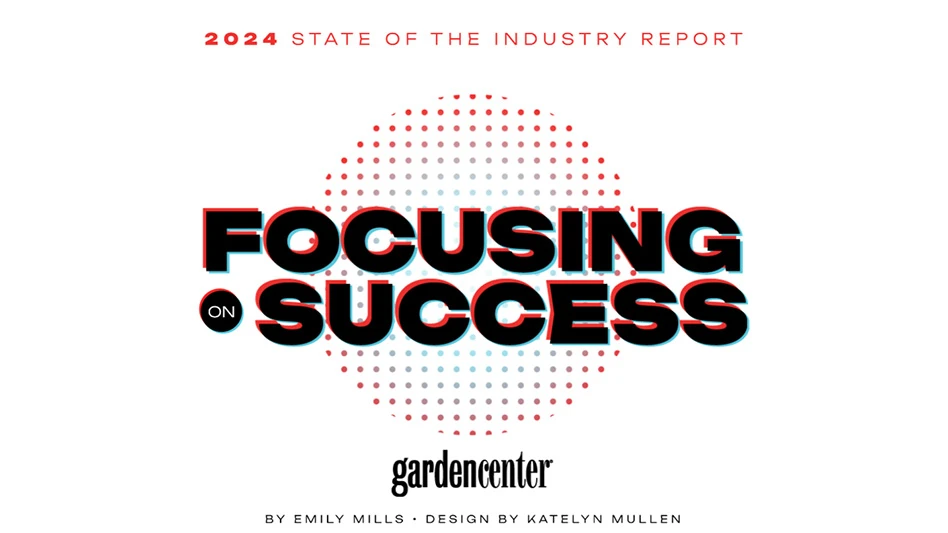
ADOBE STOCK

From local newspaper and television stories to social media reviews, coverage of your independent garden center sways the opinions of consumers interested in your store. When press is positive, everyone basks in the warmth. But when negative media hits, what you say and do are crucial to weathering the storm. The following principles can help your IGC navigate negative media coverage effectively:
1. Establish a communications plan — before a crisis hits.

Your company may have an emergency operations plan, but have plans for communicating in times of crisis received similar attention? Planned events such as store closings or layoffs allow time for carefully crafted press releases. Crisis situations, from data breaches to #MeToo revelations or sudden changes in management, don’t.
Thomas Fladung, managing partner at Cleveland-based crisis communications firm Hennes Communications, speaks from 33 years of newspaper experience. “Immediacy and urgency set a true crisis apart,” he says. “It’s so important to have that communications plan in place ahead of time, because you won’t have time to sit down and game plan it out.”
Brainstorming with your team can prepare you for the unexpected. Devise crisis communication plans for events most likely to occur, including what to say, how to say it, when to say it and to whom. Craft statements for conventional media, but don’t forget posts for your website and social media pages.
Fladung emphasizes that your initial communications may be the first thing your key employees, business partners and core customers see or hear about a crisis. “A communications plan, done in advance, arms you with the message that you can get out there,” he says.
2. Designate a point person for media inquires.

An effective communication plan for your IGC requires that everyone in your organization knows where to turn when media inquiries come in. Debi Drescher, marketing and branding director for Pennsylvania-based Stauffers of Kissel Hill, stresses that IGCs should route all media communications through a single person.
At Stauffers, media inquiries and feedback from the IGC’s website and social media pages all filter through Drescher. This ensures consistency and accuracy, but it also guarantees one person sees everything — ingoing and outgoing, positive and negative. With that big picture, Drescher can ensure everything gets handled appropriately.
The wisdom of that philosophy was apparent when Stauffers recently decided to permanently cancel a long-standing holiday event. While the team expected public disappointment over the decision, they didn’t foresee miscommunications by outside parties about the reasons behind it. When media inquiries followed, Drescher’s established communications plan allowed her to correct, clarify and control the narrative to minimize negative press.
Even for small IGCs, Drescher says a formal point person is essential. “Have someone be responsible,” she advises. “Whether it’s an owner or a manager, there has to be one key person who’s the ‘reputation monitor’ for consistent messaging and to make sure nothing goes rogue.”


3. Respond to negative press quickly and transparently.
In this era of instant communication, a speedy response is critical, especially with events such as data breaches that shake the confidence of people who put their trust in you. “People are waiting to hear from you, on social media and in conventional media, when that crisis hits,” Fladung says. When you’re silent too long, the potential for negative public perception increases.
For Fladung and his associates at Hennes, effective crisis communications boil down to four essentials: Tell the truth, tell it first, tell it fast, and tell it all.
“The most common communications blunder is not communicating,” Fladung says. “You want your truth out there, you want to take control of that story. The best way to deal with bad news is to take control of it and tell it.”
The second biggest mistake is trying to obscure the facts. “If you don’t tell the truth, you’re in deep trouble because the truth will come out,” Fladung says. “Now you’re not only dealing with the crisis, you’re dealing with the fact that you either covered it up or lied about it, and that often becomes bigger than the crisis itself.”
4. Take action, tell people about it and follow through.
When planned or unforeseen events at your IGC generate negative press, sharing your solution to the problem helps protect your reputation and control the story’s tone.
“Tell people what you’re doing about it. That’s the way you can begin to move from villain to what we call vindicator,” Fladung says. “Your biggest uninsured asset is your reputation ... but if you don’t communicate those actions clearly and quickly and succinctly, you’re still subject to having your reputation damaged, even if you do the right thing.”
When Stauffers decided to close a location in 2018, they announced the closing a full year in advance. A prepared press release stated the facts and reasons behind the decision, but the company didn’t stop there. It also shared that the location’s team members would be offered positions at other Stauffers locations and that the store’s selection and service wouldn’t suffer in the intervening year.
Then the company followed through on its promises. “We took the bad PR impact upfront,” Drescher says. “When [the closing] happened, it was very minimal.”

5. Use digital media to get your story out.
When crisis situations occur, Fladung encourages businesses to go digital. “The most effective way to communicate during a crisis is to get directly to your key stakeholders. Go directly to those people who care the most about you — your staffers, your employees, your customers, your vendors,” he says. “An email can be a way to do that, but social media also is a great way to get your message directly out and have it circulated.”
The key to leveraging social media in times of crisis is building a social following before bad news hits. “These are people that like you, trust you, believe in you,” Fladung says. “When a crisis hits, you can go to them and tell your story because you’re already established there.
“Social media is not a technology, it’s an enduring cultural shift. If you’re running a business, especially a business that is at all public-facing, like [garden centers], to ignore social media is to do so at your own peril.”

6. Don’t underestimate the clout of social media reviews.

Negative press in conventional media carries weight, but negative social media warrants just as much attention and care. “Social media has changed the world on how you can be perceived, negative or positive,” Drescher says. “Online reputation is so important. Online referrals and reviews are how people are choosing where to shop.”
Stauffers uses Google Alerts to constantly monitor media mentions of the company. In addition, someone monitors social media throughout the day. “Any feedback, especially on a social site or via a website, needs an immediate response,” Drescher says. “In our case, our rule is less than 24 hours, but it’s usually the same day.”
Rob Sproule, co-owner of Salisbury Greenhouse in Alberta, Canada, also runs the digital marketing agency DIG (Digital for Independent Garden Centres). He offers four steps for handling negative posts:
- Answer as quickly as possible.
- Be constructive and never defensive.
- Don’t address their issues directly.
- Offer your email address and move the conversation offline.
From Sproule’s perspective, people reading bad reviews primarily look to how the business responds. “Think about all the people who’ll be reading the review and evaluating whether or not they come to spend money with you based on what you say. It’s a test,” he says.
“The most important thing for IGCs to understand is that this matters,” Sproule says. “The customers they’re targeting, which are Millennial women, are reading this stuff before they come in and basing their buying decisions in large part on what they see, because that’s what they trust.”
Negative media coverage of any kind is never pleasant, but it doesn’t have to tarnish your IGC. With advance planning, solid communications and digital media working for you, you can show consumers you care — and maybe even enhance your standing.

Explore the February 2019 Issue
Check out more from this issue and find your next story to read.
Latest from Garden Center
- Veseris expands in turf and ornamental with acquisition of Tessman and Lynde companies
- Pantone announces its 2025 Color of the Year
- Plant Development Services, Inc. unveils plant varieties debuting in 2025
- Happy holidays from the GIE Media Horticulture Group!
- Promo kit available to celebrate first National Wave Day on May 3
- Applications now open for American Floral Endowment graduate scholarships
- Endless Summer Hydrangeas celebrates 20 years with community plantings
- Invest in silver





